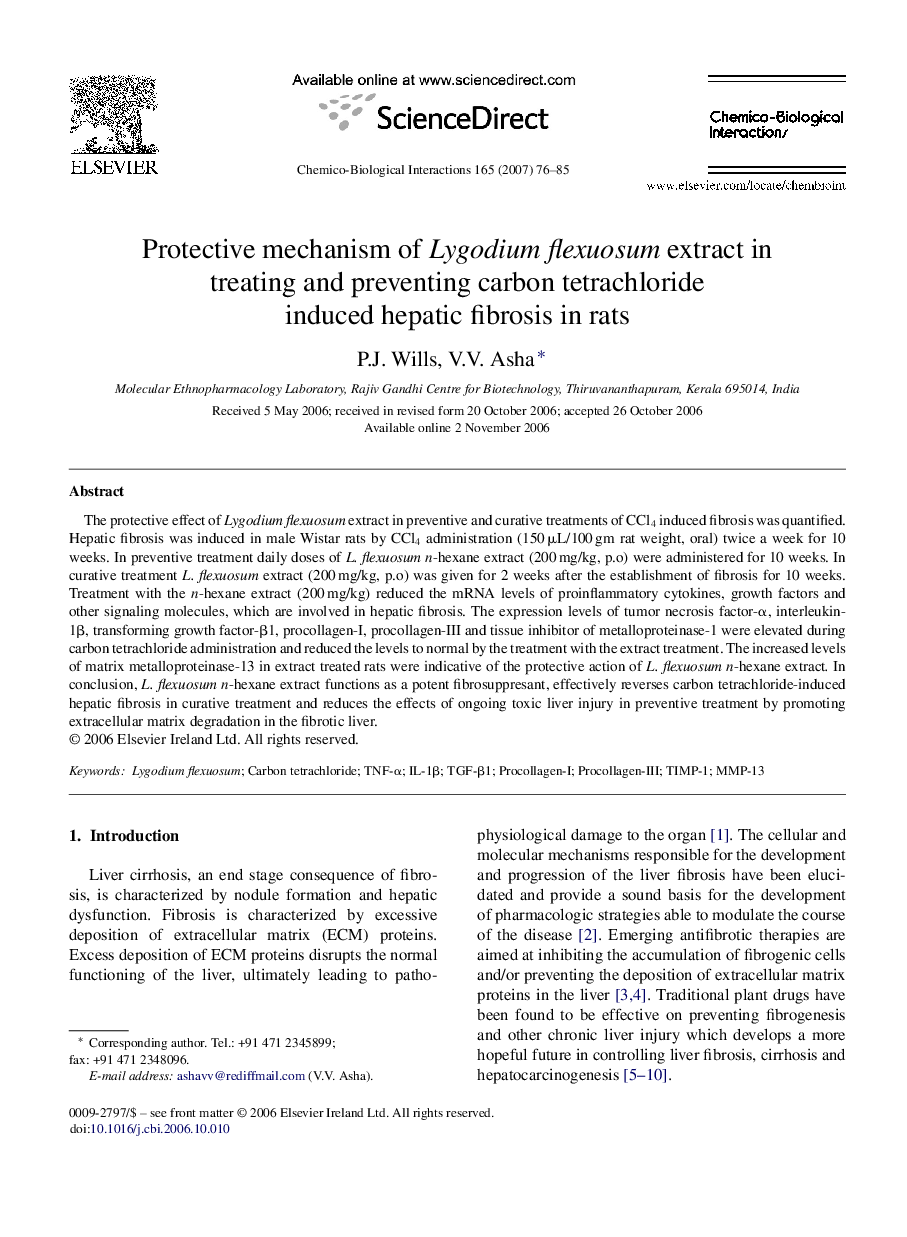| Article ID | Journal | Published Year | Pages | File Type |
|---|---|---|---|---|
| 2582181 | Chemico-Biological Interactions | 2007 | 10 Pages |
The protective effect of Lygodium flexuosum extract in preventive and curative treatments of CCl4 induced fibrosis was quantified. Hepatic fibrosis was induced in male Wistar rats by CCl4 administration (150 μL/100 gm rat weight, oral) twice a week for 10 weeks. In preventive treatment daily doses of L. flexuosum n-hexane extract (200 mg/kg, p.o) were administered for 10 weeks. In curative treatment L. flexuosum extract (200 mg/kg, p.o) was given for 2 weeks after the establishment of fibrosis for 10 weeks. Treatment with the n-hexane extract (200 mg/kg) reduced the mRNA levels of proinflammatory cytokines, growth factors and other signaling molecules, which are involved in hepatic fibrosis. The expression levels of tumor necrosis factor-α, interleukin-1β, transforming growth factor-β1, procollagen-I, procollagen-III and tissue inhibitor of metalloproteinase-1 were elevated during carbon tetrachloride administration and reduced the levels to normal by the treatment with the extract treatment. The increased levels of matrix metalloproteinase-13 in extract treated rats were indicative of the protective action of L. flexuosum n-hexane extract. In conclusion, L. flexuosum n-hexane extract functions as a potent fibrosuppresant, effectively reverses carbon tetrachloride-induced hepatic fibrosis in curative treatment and reduces the effects of ongoing toxic liver injury in preventive treatment by promoting extracellular matrix degradation in the fibrotic liver.
